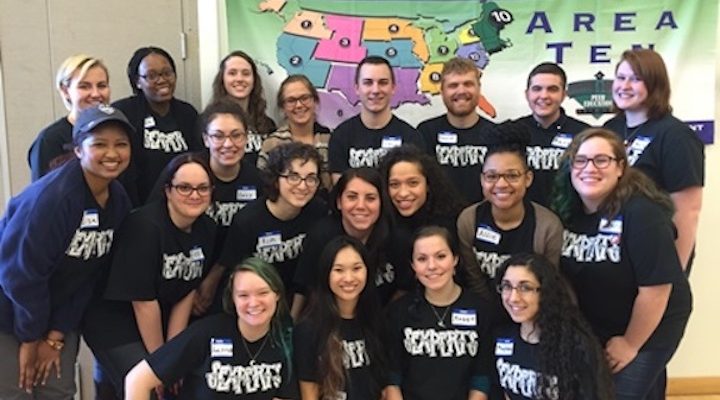By Sophia Scorziello
For 15 years, the University of Connecticut’s Student Health and Wellness has employed a peer education group known as the Sexperts to provide evidence-based sexual health and safety programming to students. Their agenda promotes the awareness of different issues about sexual health, the importance of respecting others sexual choices and consent.
The group is facilitated by Student Health and Wellness advisor Cassy Setzler.
Setzler said their mission is to “promote positive and responsible sexual health to UConn students.”
Every semester, students are welcomed to apply and partake in an interview to become a Sexpert. Anika Vincent, the Sexperts student coordinator, said they look for driven students looking to learn and help improve the group.
Group work can total to around 10 hours a month, so they also look for students who are committed and are willing to put in ample time. Being a team player is key: “We’re all one team and we all work together. We present together, we learn together and we all have a common goal of educating UConn,” she said.
Setzler says the 10 hour commitment, while rigorous, yields for a stronger bond between team members which strengthens their ability to present safer-sex talks.
The Sexperts currently run two programs, Rubberwear and Safer Sex 101, which can be booked by any student organization on campus.
Through these two presentations, the group gets to interact with students on a visual, demonstrative and conversational level to create an easier flow of conversation on topics that can be considered taboo.
Not only do these students have to be dedicated to working as a Sexpert, they have to be okay with stepping out of their comfort zone.
“We also look for students who are comfortable presenting topics that can be seen as taboo or uncomfortable,” Vincent said. “It takes a lot of time stepping out of your comfort zone, being able to stand up and present in front of your peers.”
While talking about sex to your peers can seem awkward, Vincent believes it doesn’t have to be.
“Something’s only taboo if you let yourself believe it’s taboo,” she said. “So our job as Sexperts is to be those people that set the stage at the beginning of a program, or honestly whenever we’re talking about these topics, that it’s ok to talk about these things.”
Through open communication, mood-lightening activities and games, students are more inclined to trust and retain the information that the Sexperts are giving.
Even with topics as serious as pregnancy, STDs and sexual consent, laughter is a key in communicating to students and breaking the barrier of uncomfortableness.
“When laughter is involved people are more inclined to trust the presentation and trust the information,” Vincent said.
Setzler believes that when students ask the Sexperts silly or unmannered questions, they often are just uncomfortable discussing certain sexual health topics.
“We find that when people are asking silly questions, they’re doing it because they’re uncomfortable but they really want to know, and they really want to learn,” Setzler said. Safer-sex education is only half of the battle. “It’s also the education and the access. If you’re providing education and not providing condoms as well then you’re not doing your entire part,” said Setzler.
Transitioning from high school to college is an important time and often comes with alterations to students’ perspectives on things they might have thought they had all figured out. Sexual health is one of those things.
Vincent pointed out the wide spectrum of sexual health knowledge that students are exposed to prior to entering college. They can come in knowing a fair amount or knowing close to nothing. The Sexperts help to level off the sexual health knowledge curve.
“Personally, I think the biggest issue regarding sexual health on college campuses is lack of knowledge, honestly, of the importance of sexual health and practicing safe sex. The whole emerging adulthood, we’re young adults now, myself included, is a unique time. It’s really important that universities and UConn takes responsibility to develop their students and help them prepare for the real world out there,” said Vincent.


